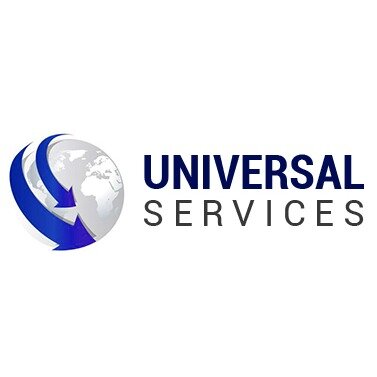Best Natural Resources Lawyers in Panama
Share your needs with us, get contacted by law firms.
Free. Takes 2 min.
Or refine your search by selecting a city:
List of the best lawyers in Panama
About Natural Resources Law in Panama
Panama is endowed with a rich array of natural resources, including forests, water bodies, and diverse minerals. The country's geographical location and abundant biodiversity make it an attractive hub for environmental and resource-based industries. Natural Resources Law in Panama governs the management, use, and conservation of these resources, aiming to balance economic development with environmental sustainability. The laws and regulations seek to protect resources while promoting responsible use to prevent degradation and ensure availability for future generations.
Why You May Need a Lawyer
There are several scenarios where individuals or businesses might require legal assistance in the field of Natural Resources in Panama. These include:
- Obtaining permits and licenses for resource extraction or land use.
- Navigating environmental impact assessments for proposed projects.
- Negotiating land use or resource management agreements.
- Facing allegations of non-compliance with environmental laws.
- Settling disputes over land ownership or resource usage rights.
- Engaging in conservation efforts or investments in sustainable projects.
Given the complexity and evolving nature of environmental laws, consulting with a lawyer skilled in natural resources law can be critical in addressing these issues efficiently and legally.
Local Laws Overview
Panama's legal framework for natural resources includes several key aspects:
- Environmental Impact Assessments (EIA): Mandatory for most development projects to assess potential environmental impacts and propose mitigation measures.
- Forestry Laws: Regulations governing the conservation, management, and sustainable use of forests.
- Water Resources Management: Laws related to the use, conservation, and quality management of water resources.
- Mining Legislation: Covers exploration, extraction, and closure of mineral resource operations, ensuring economic benefits and environmental protection.
- Indigenous Rights: Recognizes the rights of indigenous communities in land ownership and resource management.
Panama also partners with various international environmental agreements to support sustainable development and conservation initiatives.
Frequently Asked Questions
What is required to obtain a mining license in Panama?
A mining license requires submitting an application to the Ministry of Commerce and Industries. The process includes environmental impact assessments and consultations with affected communities.
How do forestry laws impact land development?
Forestry laws regulate the use of forest areas, often requiring permits for deforestation or changes in land use, especially in protected or conservation areas.
Are there specific laws protecting water resources?
Yes, Panamanian laws mandate the sustainable use and protection of water bodies, addressing pollution, usage rights, and conservation measures.
What roles do indigenous communities play in natural resource management?
Indigenous communities have legally recognized rights to manage lands and resources within their territories, which must be respected in development projects.
How is environmental compliance enforced in Panama?
Environmental compliance is enforced through inspections, penalties, and legal proceedings for violations of environmental regulations.
Can foreigners own land for resource extraction purposes?
While foreigners can own land, resource extraction often requires additional permits and compliance with local laws, respecting national interests and community rights.
What are the penalties for illegal logging activities?
Penalties include fines, revocation of licenses, and potential criminal charges for severe breaches of forestry laws.
Is public participation required in environmental decision-making?
Yes, public consultations are typically part of the environmental impact assessment process, allowing communities to voice concerns or support.
Are there incentives for sustainable resource management?
The government offers various incentives, including tax breaks or grants, for projects that promote sustainability and environmental protection.
What is the process for disputing a natural resource decision?
Disputes can be addressed through administrative appeals or by filing a case in court. Consulting with a legal expert is advisable for navigating this process.
Additional Resources
For more information or assistance, consider reaching out to these resources:
- National Authority of the Environment (ANAM): Provides guidelines and enforcement of environmental laws.
- Ministry of Commerce and Industries: Oversees licenses and permits related to natural resources.
- Indigenous Affairs Office: Offers insights into laws and rights related to indigenous land and resource use.
- Local Environmental NGOs: Can provide additional support and advocacy for sustainable practices.
Next Steps
If you need legal assistance regarding natural resources in Panama, consider taking the following steps:
- Identify your specific legal needs: Clearly understand what aspects of natural resources laws you need help with.
- Consult with a specialized lawyer: Choose a lawyer experienced in Panama's natural resources laws, possibly through recommendations or a legal directory.
- Gather relevant documentation: Prepare permits, agreements, or any legal documents related to your case to inform the consultation process.
- Research applicable laws: Familiarize yourself with basic laws and regulations to better engage in discussions with your lawyer.
- Consider mediation: For disputes, mediation might offer a cost-effective and timely resolution, often facilitated by legal professionals.
Engaging in thorough preparation and having knowledgeable legal support can significantly enhance outcomes in natural resource-related legal matters.
Lawzana helps you find the best lawyers and law firms in Panama through a curated and pre-screened list of qualified legal professionals. Our platform offers rankings and detailed profiles of attorneys and law firms, allowing you to compare based on practice areas, including Natural Resources, experience, and client feedback.
Each profile includes a description of the firm's areas of practice, client reviews, team members and partners, year of establishment, spoken languages, office locations, contact information, social media presence, and any published articles or resources. Most firms on our platform speak English and are experienced in both local and international legal matters.
Get a quote from top-rated law firms in Panama — quickly, securely, and without unnecessary hassle.
Disclaimer:
The information provided on this page is for general informational purposes only and does not constitute legal advice. While we strive to ensure the accuracy and relevance of the content, legal information may change over time, and interpretations of the law can vary. You should always consult with a qualified legal professional for advice specific to your situation.
We disclaim all liability for actions taken or not taken based on the content of this page. If you believe any information is incorrect or outdated, please contact us, and we will review and update it where appropriate.
Browse natural resources law firms by city in Panama
Refine your search by selecting a city.

















